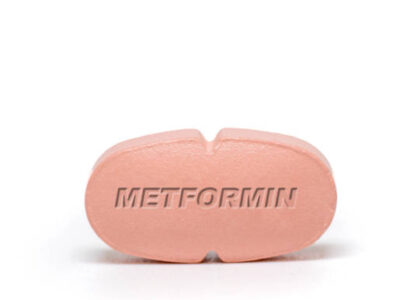Past research has shown that Modafinil improves cognitive function in sleep-deprived people, and also boosts IQ in people with schizophrenia. However, it has not been clear what the drug does in healthy people who aren’t sleep-deprived.
It Stimulates Dopamine Receptors
In many cases, drugs that increase mental performance, like Modafinil, do so by stimulating dopamine receptors. These dopamine receptors are located throughout the brain and are responsible for several different functions, including attention, learning, memory, and even the ability to create new memories. This is why people who take stimulant drugs, like Adderall, often report feeling more alert and focused.
Studies in animals and humans have shown that Modafinil Australia increases dopamine (and norepinephrine) levels, resulting in improved wakefulness and cognitive performance. This may be because it is a powerful agonist of dopamine and norepinephrine reuptake transporters and acts as an indirect inhibitor of dopamine release.
Modafinil also stimulates the alpha 1B adrenoceptors in the brain, which are involved in regulating stress responses and cognitive function. It is this property that may make it so effective as a cognitive enhancer.
Unlike amphetamines, which can have dangerous side effects, Modafinil has very few of these, and it is very well tolerated by healthy subjects. It also has a low potential for abuse or dependency.
However, it’s important to remember that most of the studies that have tested Modafinil for its cognitive enhancing abilities were using very basic tests designed to help neurologically impaired individuals. More complex cognitive tests are needed, and Modafinil may be found to reliably boost cognition on these more difficult assessments.
It Increases Dopamine Levels
Modafinil increases levels of the neurotransmitter dopamine in the brain. The drug binds with a low affinity to the dopamine reuptake transporter in the cingulate cortex of the brain, but its actions are much more powerful than those of some molecules that have higher affinity for the transporter.
The drug does not increase the activity of the dopamine autoreceptors, which control dopamine release. Instead, it appears to enhance the release of histamine and acetylcholine in the prefrontal cortex, thereby increasing cognitive function. (Tanganelli et al, 1992)
Researchers have used both basic and complex tests to evaluate how Modafinil affects people’s thinking ability. Studies using simple tests tend to be inconclusive, but more recent studies that use more complex tasks have found consistent improvements in a variety of measures that measure different aspects of cognition. In particular, the drugs improve what are call executive functions, which involve sifting through new information and making plans or strategies for handling it.
It’s important to note that, despite these positive findings, scientists are not yet ready to recommend Modafinil as a brain supplement for healthy people. There is still not enough evidence that it can be take long-term without risking negative side effects or developing a dependency. Moreover, it’s not clear that any of the other cognitive enhancement supplements on the market — often referred to as Nootropic — have been studied as thoroughly as Modafinil has.
It Boosts Brain Activity
Modafinil has been show to enhance performance in a variety of tasks. A recent study found that Modafinil improved the ability to perform complex mental tasks in healthy subjects, especially when the task involved learning new information. The effect lasted up to 8 weeks after administration.
Other studies have also shown that Modafinil improves memory. Interestingly, this enhancement occurs even when the drug is not take regularly. This is probably because Modafinil doesn’t interfere with other neurochemical systems involved in memory, such as acetylcholine.
Another study using fMRI to examine the effects of Modafinil on brain activity found that left BA 46 activity was increase after Modafinil administration, and this activity was related to improvement in task performance. This finding suggests that the cognitive enhancing effects of Modafinil may depend on a specific neural circuitry.
The same group of investigators also report that a single 200 mg dose of Modafinil after overnight sleep deprivation was associate with improvement in cognitive performance in the WMST and letter-number span. The improvement was correlate with a reduction in premature responses in the WMST and an increase in correct responses in the WCST. This result suggests that the cognitive enhancing effects of Modafinil are dependent on the fronto-cortical loops modulate by ascending DA systems.
However, another group of researchers used a similar procedure to test the cognitive-enhancing effects of Modafinil in non-sleep-deprived volunteers and found that these effects were not as strong as in the sleep-deprived subjects. This could be because the normal, non-sleep-deprived volunteers are older and may have cognitive decline that involves neurochemical systems unaffected by Modafinil, such as acetylcholine.
It Improves Memory
Modafinil has been show to improve memory in several clinical studies. One study found that Modafinil increased the speed and accuracy of participants on a digit span task, without affecting their ability to switch tasks (Turner et al, 2003). Modafinil also has been show to increase performance on delayed matching tasks and on a serial alternation test in mice (Beracochea et al, 2001) and to enhance the rate of learning-related activity in the brain’s prefrontal cortex in humans.
Another study found that after a single dose of Modafinil, patients with schizophrenia showed a greater amount of behavioural activation than those treated with placebo, as measured by wrist-worn autography during 20 hours in an inpatient research unit. The change in this measure was significantly associate with changes in the covariance between left BA 46 neural activity and the temporal variation of inter-response intervals on a visual sustained attention task.
While Modafinil was develop to treat narcolepsy, there is growing interest in using the drug to enhance cognitive functioning, particularly among healthy individuals who are not sleep-deprive. The drug appears to be safe for such use and has a low liability for abuse, according to Berm and Battle Day.
It has also been show to boost mood and have few side effects. In 70 percent of the studies they reviewed, they found no serious adverse events; some of the few negative findings included insomnia, headache, stomachache, and nausea, which were all reported in placebo groups. Read More Blog…





